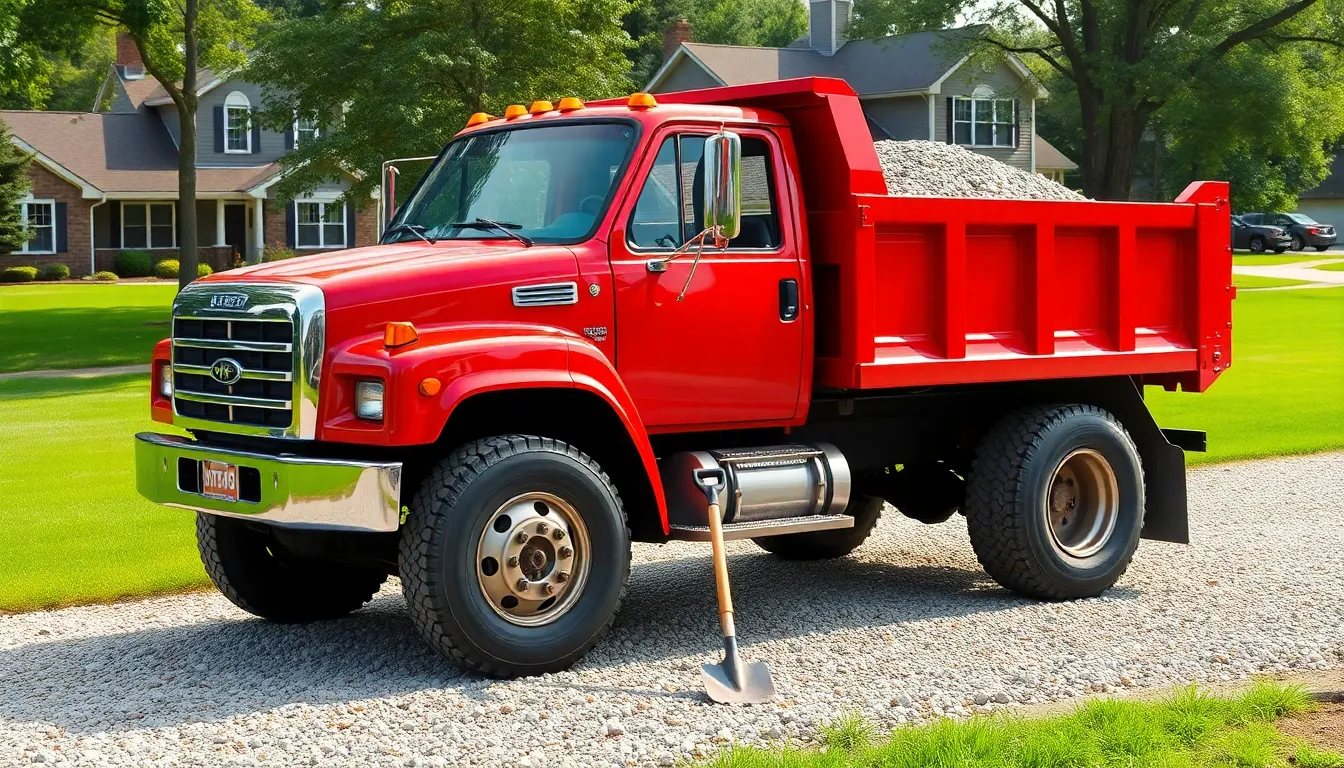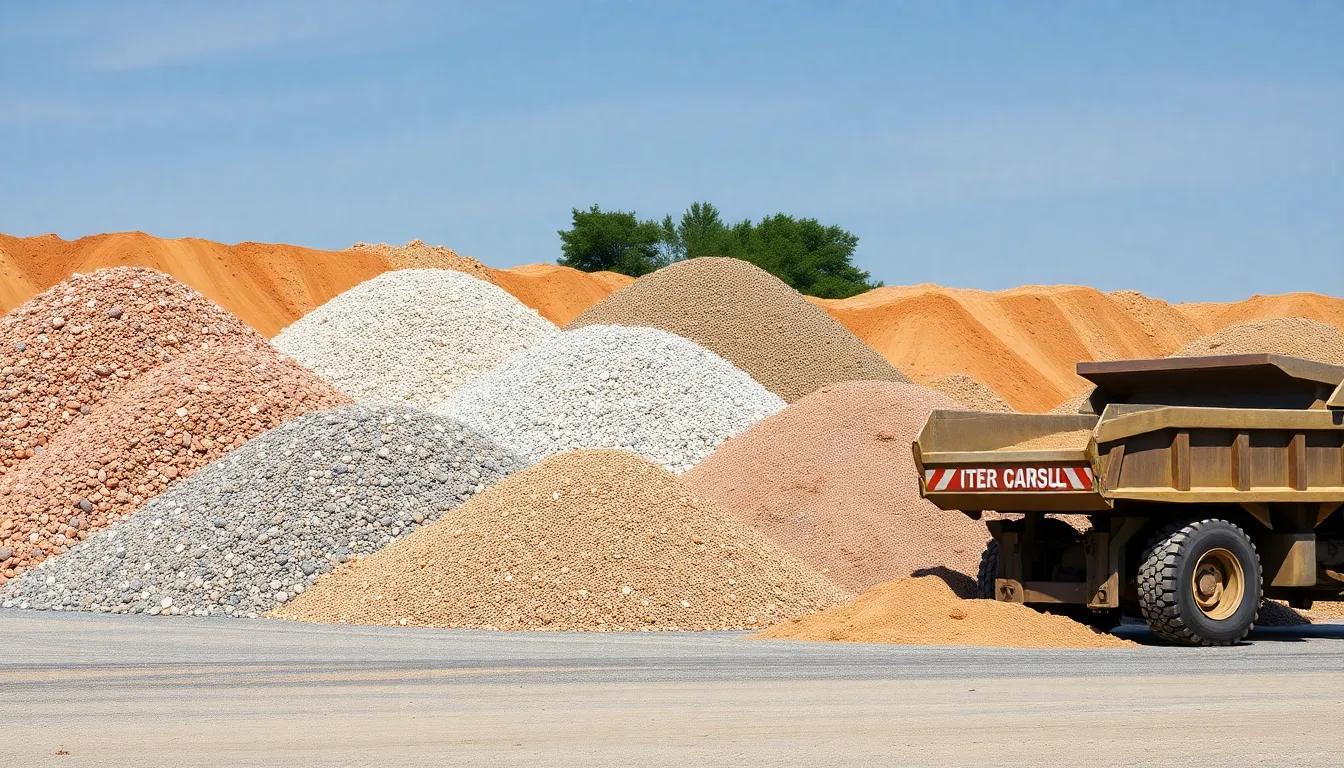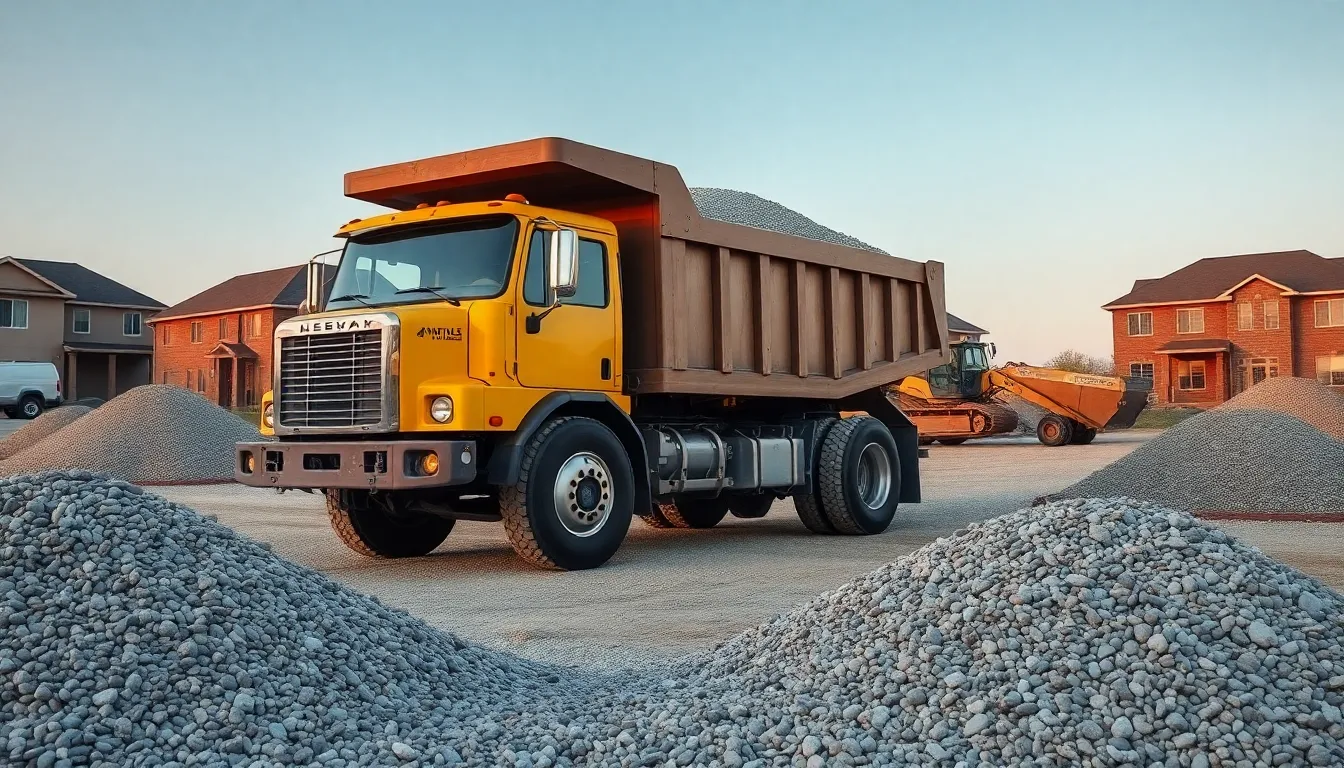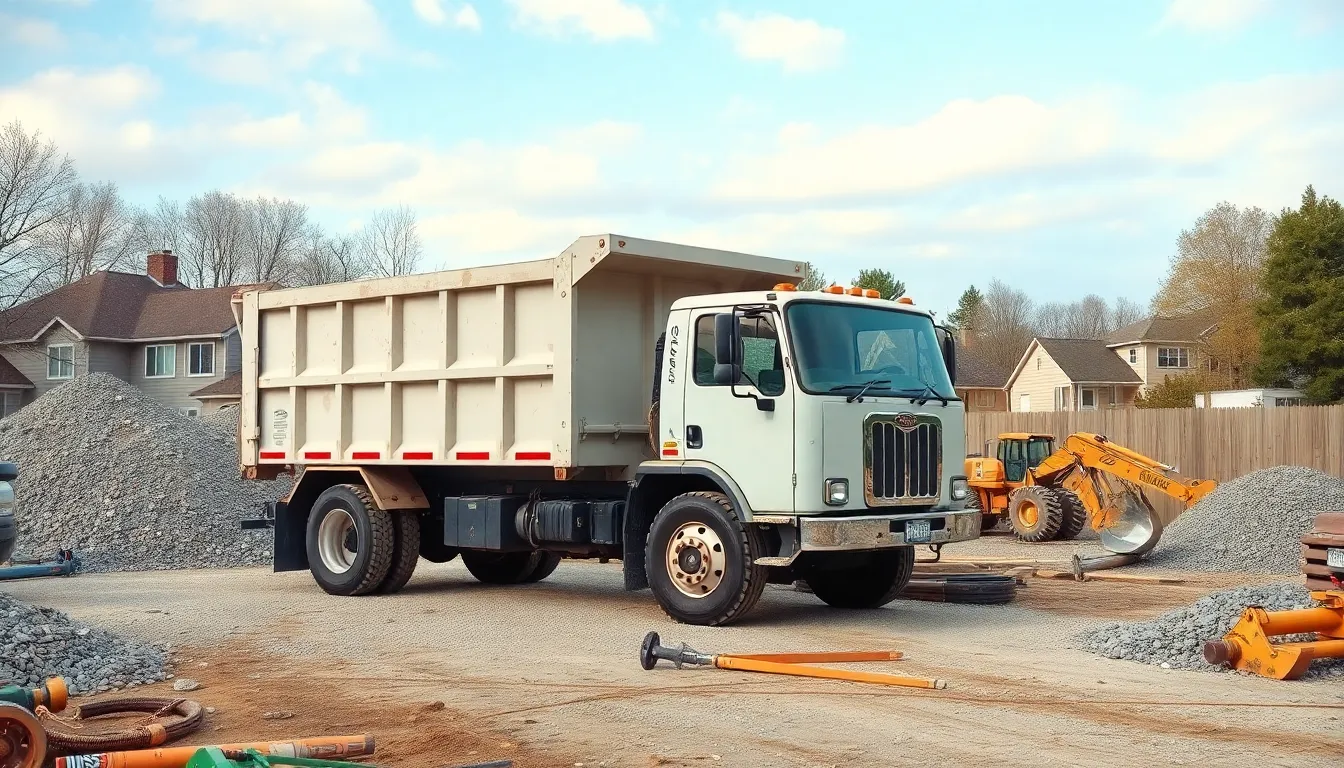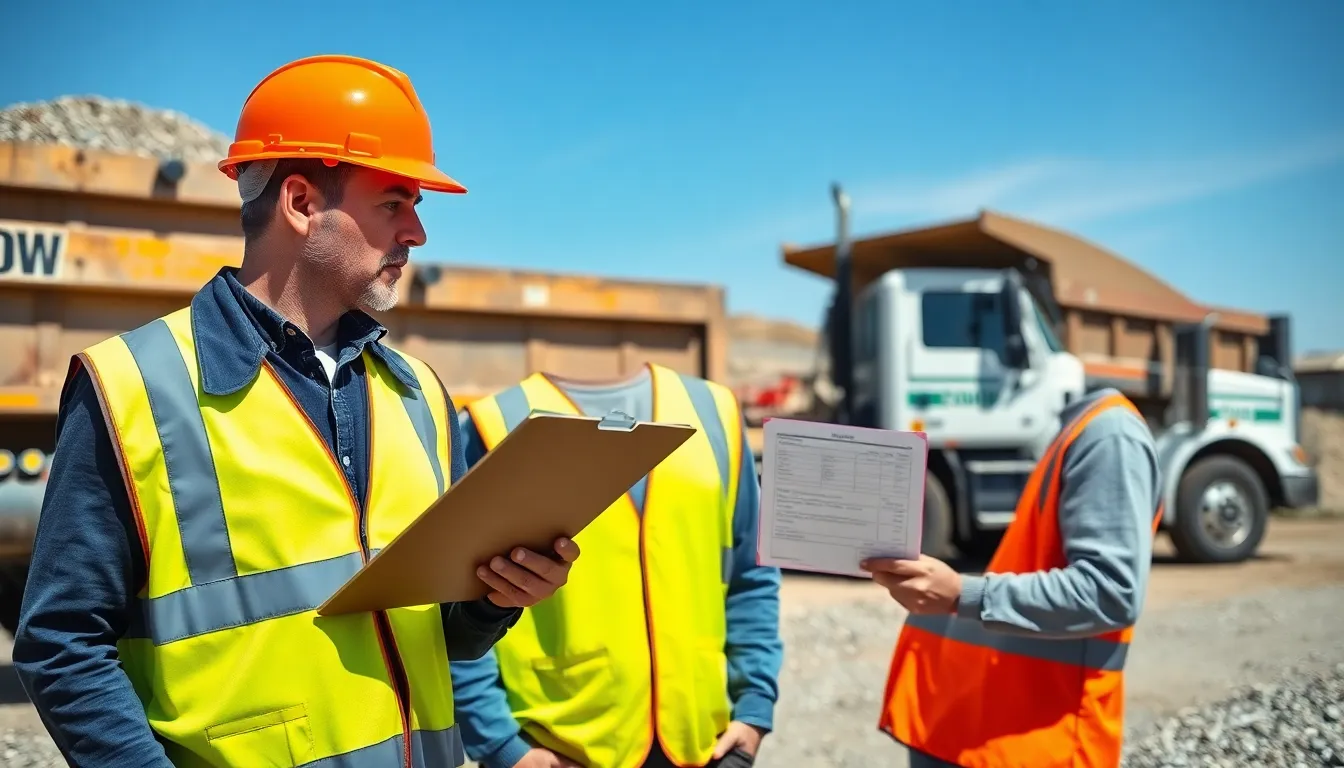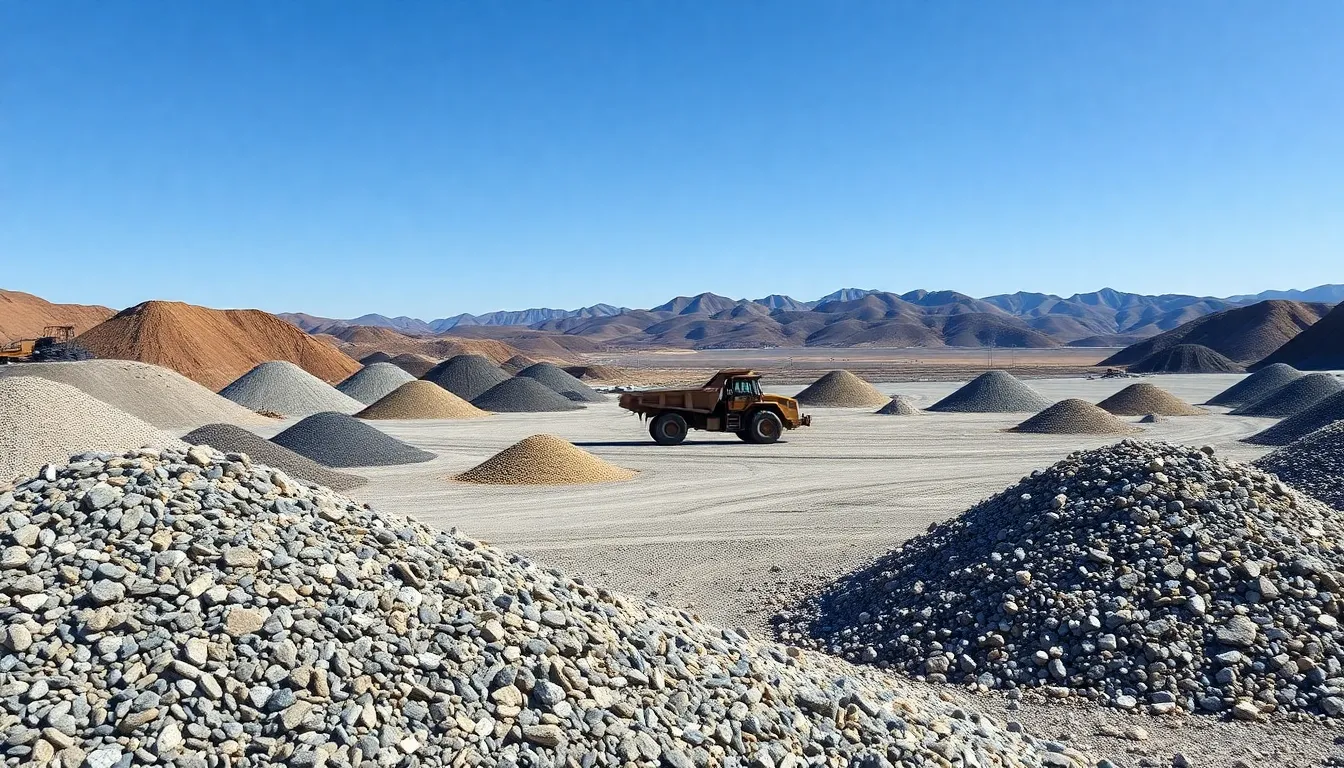Planning a driveway renovation or landscaping project? We’ve all been there – standing in our yards wondering exactly how much that dump truck load of gravel will set us back. It’s one of those essential materials that can make or break your budget if you’re not prepared.
The cost of a dump truck load of gravel varies significantly based on several key factors we’ll explore. From the type of gravel you choose to your location and delivery distance these variables can swing your total cost by hundreds of dollars. We’re talking anywhere from $300 to $1,200 for a typical residential delivery.
Understanding these pricing factors before you call suppliers can save you serious money and prevent sticker shock. We’ll break down everything you need to know about gravel costs including hidden fees smart buying strategies and how to calculate exactly how much material your project requires.
Factors That Affect Dump Truck Load Gravel Costs
Several key variables determine how much you’ll pay for a dump truck load of gravel. Understanding these cost drivers helps you budget accurately and compare quotes effectively.
Type and Size of Gravel
Different gravel varieties command vastly different prices based on their composition and processing requirements. Crushed granite typically costs $45 to $75 per ton while decorative river rock ranges from $55 to $85 per ton. Pea gravel falls in the middle at $35 to $55 per ton.
Stone size significantly impacts pricing structures across all gravel types. Smaller aggregates like 3/8-inch pea gravel cost more per ton than larger 2-inch river rock because they require additional screening processes. Specialty sizes such as 1/4-inch chips or dust command premium prices of $60 to $90 per ton.
Processing methods also influence gravel dump truck load costs. Washed gravel costs $10 to $15 more per ton than unwashed varieties because cleaning removes dust and debris. Angular crushed stone typically runs $5 to $10 higher per ton than rounded natural gravel due to the crushing equipment required.
Distance and Delivery Location
Delivery distance represents one of the largest variables in dump truck gravel pricing. Most suppliers charge $2 to $5 per mile beyond their standard delivery radius of 10 to 20 miles. Urban areas with heavy traffic increase delivery costs by $50 to $100 per load due to longer travel times.
Remote locations often face surcharges ranging from $75 to $200 per delivery. Mountain communities and rural properties with difficult access roads may see additional fees of $25 to $50 per load. Some suppliers refuse deliveries beyond 50 miles from their quarries.
Site accessibility directly affects delivery pricing when standard dump trucks cannot reach the intended location. Narrow driveways requiring smaller trucks increase costs by $30 to $60 per load. Properties without proper turning radius may require additional labor charges of $50 to $100 for hand placement.
Local Market Conditions
Regional supply and demand fluctuations create important price variations across different markets. Metropolitan areas typically see gravel costs 20% to 40% higher than rural regions due to increased transportation expenses and real estate costs for quarry operations.
Seasonal demand patterns heavily influence gravel dump truck pricing throughout the year. Spring construction season drives prices up 15% to 25% above winter rates. Summer road maintenance projects create additional demand spikes that can increase costs by $10 to $20 per ton.
Local competition levels determine baseline pricing structures in each market. Areas with multiple quarries maintain competitive rates while regions dominated by single suppliers often see prices 30% to 50% above national averages. Proximity to major highway systems generally reduces costs by $5 to $15 per ton due to efficient transportation networks.
Average Cost Breakdown by Gravel Type
Understanding gravel pricing by type helps you make informed decisions for your project. Different gravel materials carry distinct price points based on their source, processing methods, and intended use.
Crushed Stone and Limestone
Crushed stone represents one of the most versatile gravel options, with prices ranging from $15 to $75 per ton. A typical dump truck load carries 13 to 25 tons, resulting in costs between $195 and $1,875 per load. This durable material requires minimal maintenance once installed, making it cost-effective for long-term projects.
Limestone offers a more exact pricing range at $30 to $38 per ton, translating to $390 to $950 per dump truck load. Contractors commonly choose limestone for base applications due to its compaction properties and stability. The consistent pricing reflects limestone’s widespread availability and standardized processing methods across most regions.
Pea Gravel and River Rock
Pea gravel costs between $28 and $45 per ton, with dump truck loads priced from $364 to $1,125. These small, rounded stones provide excellent drainage and create attractive landscaping features. The smooth texture makes pea gravel popular for walkways and decorative applications.
River rock commands premium pricing at $35 to $100 per ton, resulting in dump truck loads costing $455 to $2,500. Attractive appearance and low maintenance requirements justify the higher cost for many homeowners. Sourcing challenges contribute to river rock’s position at the expensive end of gravel options, particularly when natural collection sites are distant from project locations.
Sand and Fill Dirt
Sand and gravel combinations, particularly Class 5 material, cost $11 to $19 per ton with dump truck loads ranging from $143 to $475. These mixtures work well for foundation applications and provide excellent compaction characteristics. Suppliers often package sand with gravel rather than selling pure sand in full dump truck quantities.
Individual fill dirt and sand typically price around $10 to $30 per ton when available separately. Most suppliers don’t offer pure sand or fill dirt in complete dump truck loads, instead preferring to sell these materials in smaller quantities or as part of blended products.
Dump Truck Capacity and Pricing Structure
Dump truck capacity directly affects the total cost of your gravel delivery since larger trucks carry more material per trip. Pricing structures vary between per cubic yard rates and per load calculations.
Standard Dump Truck Sizes
Small dump trucks typically carry 3 to 5 cubic yards of gravel per load. These compact vehicles work best for residential driveways or small landscaping projects where access might be limited.
Medium dump trucks usually carry 10 to 16 cubic yards of material. Construction companies and homeowners commonly choose these trucks for moderate sized projects like larger driveways or garden installations.
Large dump trucks can transport up to 20+ cubic yards per load. Commercial projects and bulk deliveries often use these massive vehicles to maximize efficiency and reduce multiple trips.
Cost Per Cubic Yard vs. Per Load
Gravel costs between $15 and $75 per cubic yard depending on the exact type and quality. Common materials like pea gravel or crushed stone usually range from $29 to $86 per cubic yard.
Per load pricing multiplies the cost per yard by the truck’s capacity. A medium truck carrying 12 cubic yards at $40 per yard costs $480 per load.
Per ton rates range from $10 to $50 for standard gravel types. Specialty gravels can exceed $99 per ton based on processing requirements and material sourcing.
Bulk purchases often include discounts for larger orders. Distance and delivery fees increase total costs significantly for remote locations.
| Truck Size (Yards) | Price per Load (Example $35/yard) |
|---|---|
| 3–5 | $105–$175 |
| 10–16 | $350–$560 |
| 20+ | $600+ |
Specialty gravels like white or black varieties cost more per cubic yard than standard crushed stone options. Location factors and delivery requirements create additional pricing variations across different regions.
Additional Costs to Consider
Beyond the base price of gravel, several additional expenses can significantly impact your total project budget. Understanding these potential costs helps you plan more accurately and avoid unexpected charges during delivery.
Delivery Fees and Fuel Surcharges
Transportation costs represent a major component of gravel pricing that varies dramatically based on distance and current fuel prices. Most suppliers charge delivery fees ranging from $50 to $200 per load depending on your location’s proximity to their facility. Fuel surcharges add another layer of expense, typically calculated as a percentage of the total order value or a flat fee per mile traveled.
Remote locations often incur additional distance charges when delivery sites exceed the supplier’s standard service radius. These charges can add $1 to $3 per mile beyond the base delivery zone. Urban deliveries face traffic-related surcharges during peak hours, potentially increasing costs by 15% to 25% above standard rates.
Peak demand periods like spring construction season drive fuel surcharge rates higher as transportation costs increase across the industry. Some suppliers offer fuel price protection programs that lock in surcharge rates for larger orders or regular customers.
Permits and Accessibility Issues
Municipal permits can add $25 to $150 to your gravel delivery costs when trucks must access public streets or construction zones. Residential areas with weight restrictions require special routing permits that increase delivery complexity and expense. Commercial projects often face stricter permitting requirements that can delay deliveries and increase administrative costs.
Site accessibility directly affects delivery pricing through equipment and labor requirements. Narrow driveways force suppliers to use smaller trucks, increasing the number of trips needed and raising per cubic yard costs by 20% to 40%. Steep grades or soft ground conditions require specialized equipment like conveyor systems or smaller vehicles, adding $100 to $300 in handling fees.
Underground utilities or overhead power lines create delivery constraints that necessitate hand unloading or precise truck positioning. These accessibility challenges can double standard delivery times and increase labor costs significantly. Suppliers typically assess these factors during site visits and adjust pricing accordingly before confirming delivery schedules.
How to Get the Best Price on Gravel Delivery
Securing competitive pricing on gravel delivery requires strategic planning and thorough market research. We can reduce costs significantly by implementing smart purchasing strategies and understanding market dynamics.
Comparing Multiple Suppliers
Local suppliers often provide better pricing due to reduced transportation costs compared to national providers. We recommend obtaining quotes from at least three different suppliers to establish baseline pricing for your project. National suppliers typically offer wider gravel variety but may charge premium rates for delivery services.
Bulk discounts become available when purchasing larger quantities, particularly for projects requiring multiple truckloads. Contact suppliers directly to negotiate pricing on orders exceeding 10 cubic yards. Compare per-cubic-yard rates rather than total costs to accurately assess value across different suppliers.
Ask suppliers about their minimum delivery requirements since many enforce 2-cubic-yard or 2-ton minimums. Delivery fees starting around $80 per load can vary significantly between providers. Request detailed quotes that include all fees, surcharges, and taxes to make accurate cost comparisons.
Timing Your Purchase
Off-season purchasing during late fall and winter months often yields lower prices and special promotions. Construction demand decreases during colder months, creating opportunities for better pricing on gravel materials. Schedule deliveries between November and February to take advantage of reduced demand pricing.
Avoid peak construction seasons from April through September when demand drives prices higher. Spring landscaping rushes and summer construction projects create supply constraints that inflate costs. Plan projects during shoulder seasons to secure better rates and guaranteed availability.
Contact suppliers in advance to lock in pricing for future deliveries. Many providers offer price guarantees for orders scheduled 30 to 60 days ahead. Monitor local market conditions and purchase when prices trend downward rather than waiting for urgent project timelines.
Regional Price Variations Across the United States
Regional differences significantly impact gravel costs across the United States. Urban markets typically command higher prices due to increased labor expenses and complex delivery logistics in metropolitan areas. Rural regions often provide more competitive pricing since local quarries operate with lower overhead costs and shorter transportation distances.
Transportation expenses create substantial price variations between regions. Mountainous areas frequently face elevated costs when gravel sources are located far from project sites. Coastal regions may experience premium pricing due to limited quarry access and environmental restrictions on mining operations.
Market competition levels vary dramatically by location. States with abundant natural stone deposits like Texas and Colorado maintain lower base prices compared to regions with limited local resources. Northeast markets often display higher costs due to strict environmental regulations and seasonal accessibility challenges.
| Region | Average Cost Range per Ton | Notable Factors |
|---|---|---|
| Southwest | $15-$45 | Abundant limestone deposits |
| Northeast | $25-$75 | Seasonal restrictions, high labor costs |
| Southeast | $20-$50 | Moderate transportation distances |
| Northwest | $30-$65 | Environmental regulations, terrain challenges |
| Midwest | $18-$55 | Balanced supply and demand |
Supply chain factors influence regional pricing patterns. Areas near major quarrying operations benefit from reduced transportation overhead. Remote locations experience surcharges ranging from $25 to $100 per load depending on distance from distribution centers.
Seasonal demand fluctuations affect different regions uniquely. Northern states see pronounced price spikes during spring construction seasons after winter weather restrictions lift. Southern markets maintain more consistent pricing year-round due to extended construction seasons.
Local building codes and permit requirements create additional cost variations. California’s strict environmental standards often increase project expenses compared to states with more relaxed regulations. Municipal requirements for dust control and noise restrictions can add 10% to 20% to total delivery costs in densely populated areas.
Conclusion
Understanding gravel costs empowers you to make informed decisions for your project. We’ve covered everything from base pricing to hidden fees that can impact your budget.
Smart planning makes all the difference. By comparing suppliers getting multiple quotes and timing your purchase strategically you’ll secure the best possible price for your gravel delivery.
Remember that quality matters as much as cost. Choose the right gravel type for your exact needs and factor in all delivery expenses upfront. This approach ensures your project stays on budget while meeting your long-term durability requirements.
With this knowledge you’re ready to confidently navigate the gravel purchasing process and avoid costly surprises.
Frequently Asked Questions
How much does a dump truck load of gravel cost?
A dump truck load of gravel typically costs between $300 to $1,200, depending on various factors. The final price is influenced by the type of gravel, truck size, delivery distance, and local market conditions. Small residential loads may cost less, while commercial bulk deliveries command higher prices due to larger quantities and specialized equipment requirements.
What factors affect the price of gravel delivery?
Several key factors impact gravel delivery costs: gravel type and quality, delivery distance from the quarry, truck size and capacity, local market conditions, and seasonal demand fluctuations. Urban deliveries often cost more due to traffic complications, while remote locations may incur distance surcharges. Competition levels and regional supply availability also influence pricing significantly.
What are the different types of gravel and their costs?
Common gravel types include crushed stone ($15-$75 per ton), limestone ($30-$38 per ton), pea gravel ($28-$45 per ton), and river rock ($35-$100 per ton). Decorative options like river rock command premium pricing, while basic crushed materials are more affordable. Sand and gravel combinations range from $11-$19 per ton, making them cost-effective for many projects.
How much gravel can a dump truck carry?
Dump truck capacity varies by size: small trucks carry 3-5 cubic yards (ideal for residential projects), medium trucks hold 10-16 cubic yards (suitable for moderate projects), and large commercial trucks can transport 20+ cubic yards. The truck size directly affects delivery costs, with larger loads offering better per-yard pricing but higher total costs.
Are there additional fees beyond the gravel cost?
Yes, several additional fees can apply to gravel delivery. Delivery charges range from $50-$200 per load, fuel surcharges may add percentage-based costs, and remote locations face distance fees. Municipal permits can cost $25-$150, while accessibility issues requiring specialized equipment increase expenses. Traffic-related urban delivery surcharges are also common.
When is the best time to buy gravel?
The optimal time to purchase gravel is during off-peak seasons, particularly late fall and winter when demand decreases. Avoid peak construction periods in spring and summer when prices inflate due to high demand. Planning purchases during shoulder seasons and contacting suppliers in advance can help secure better pricing and lock in rates.
How do regional prices vary across the United States?
Regional gravel prices vary significantly based on local resources and market conditions. Areas with abundant natural stone deposits like Texas and Colorado offer lower prices, while regions with limited resources face higher costs. Urban markets typically charge more due to increased labor and delivery complexity, while rural areas often provide more competitive pricing.
How can I get the best price on gravel delivery?
To secure the best gravel prices, compare quotes from at least three local suppliers, as they often offer better rates due to reduced transportation costs. Ask about bulk discounts for larger orders, time purchases during off-peak seasons, and plan projects during shoulder periods. Building relationships with suppliers can also lead to better long-term pricing agreements.

